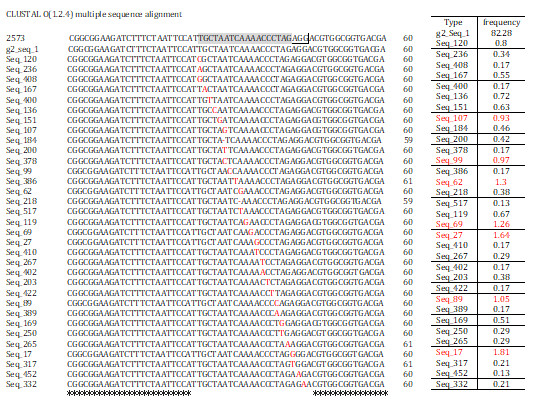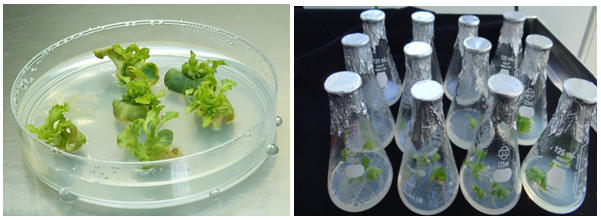- Research on Seedling Propagation Technology of Eastern Aboriginal Tribes
- Counseling on Digital Transformation of Small,Medium and Micro-sized Crops and Seedlings with Potential for Export
- Recycling of surplus materials from tomato and pumpkin productio
- Research on the improvement of a renewable energy supply chain model for the residual media of mushroom
- Adaptation and mitigation the impact of important weeds on staple crops (cucumber) under climate change
- Constructing intelligent identification services for seed and seedling industry
- Application and Promotion of Production and Sales Management Wisdom Network for Vegetable Nursery
- Function Demonstration and Optimization of the Expert System for Vegetable Seedling Production Forecast
- The establishment of smart production and application model of plant tissue culture
- Research of optimization for detecting operation procedure on seed-borne pathogens and development of seed disinfection technique
- Research and consulting on the response of seed industry under high temperature and drought stress.
- Establishment of the heat-resistant selection index and breeding of tomato
- High quality tomato and stress tolerance breeding technology in Facility.
- Evaluation and Application of Drought-tolerant Potato Germplasm Resources
- Establishment of the biological indicator of disease resistance for tomato in drought condition
- Establishment of marker assisted selection applied to the selection of drought-tolerant maize and heattolerant tomato
- Establishment of precise and efficient breeding technology for industry-oriented traits of cauliflower
- Molecular Marker-Assisted Tomato Disease Resistance Breeding Selection Model Construction and Technology Development
- Participatory Selection of Healthy Ginger Seedlings and Establishment of Production System
- Participatory selection of taro regional clonal lines
- Analysis and application of root‐associated microbes from soil-borne disease resistant and sensitive lines of Solanaceae crops
- Improvement on the Micropropagation Technique - In vitro propagation of avocado (Persea americana Mill.) through apical buds and nodal segments
- Developing of crops novel assisted breeding technology on melon
- Research on germplasm maintenance and industrial application of vegetative propagation crops
- Germplasm development and application of Aeridinae subtribe orchids and Cattleya genus.
- The Establishment of Organic Seedling and Seed Saving System
- Research on Genetic Resources and Plant New Variety DUS Testing Techniques Management and Application of the Economical and Special Crops in Taiwan
- Establishment of organic seed production and supplying system for grain crops
- The seedling leaf electrolyte leakage index was used to select papaya heat-resistant Resistance and virus Resistance varieties.
- Selecting for resistance bacterial wilt and F1 Seed Collection of tomato.
- Techniques development for bulb flowers breeding
- Establish Cucurbitaceae vegetable breeding technologies of heat tolerance
- Establishing the Technology ofNew Papaya Viety Breeding for the International Market.
- Research on Agricultural Social Responsibility for the trainees of Farmers' Academy
- Establishment of Phalaenopsis Varieties Identification and Application Integration Platform
- Study of inspection and monitoring system for precisely breeding crops
- Harmonization and Cooperation on DUS testing between Taiwan and Japan
- Taiwan-Israel Plant Variety Protection Cooperation and Study on DUS Testing
 Home > Achievement > 2022 Research Project List > Developing of crops novel assisted breeding technology on melon Home > Achievement > 2022 Research Project List > Developing of crops novel assisted breeding technology on melon |
Developing of crops novel assisted breeding technology on melon
The most effective way to control the viral disease is to breed disease-resistance plants. However, melon breeding hasn't made much progress for lacking virus-resistance varieties. The new plant breeding technology such as the CRISPR/Cas9 technique provided an efficient way to knock out host factors such as eIF4E protein which may therefore confer plant viral resistance in plants. Last year, we constructed sgRNA/Cas9 expression vectors with different GC contents and targeted different regions of the eIF4E gene. At present, we have used a protoplast transient assay to evaluate the performance of these vectors. We pooled all protoplast DNAs after PEG-mediated transfection and carried out a small-scale metagenomics analysis for the target gene to quickly evaluate the gene editing efficiency. In addition, Agrobacterium-mediated transformation was also carried out to deliver the sgRNA/Cas9 expression vectors into melon explants to induce mutants for further screening of the successfully edited plants.

▲Fig.1. Gene editing efficiency evaluation of eIF4E-g2 vecto
▲Fig.2. Regenerated plants obtained after Agrobacterium-mediated transformation

